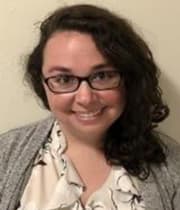Navos program is a safe space for LGBTQ+ individuals

Navos chemical dependency professional Ronald “Ron” Fitzgerald remembers hiding his sexuality at an early age and turning to drugs and alcohol.
“Growing up, this was my experience — if other men find out you’re gay, they think you’re less of a man,” Fitzgerald shares. “So I would always hide it, and I would always feel less than. I never found my niche to fit in at school. When I found drugs, I thought I found my best friend. It gave me a mask.”
Unfortunately, Fitzgerald‘s story is not uncommon. According to Addiction Center, it’s estimated that 20 to 30 percent of the LGBTQ+ community similarly struggles with substance use disorders (SUD).
After a long history of pain and substance use, Fitzgerald sought a new path.
“I just got sick and tired of being sick and tired,” he explains. “I decided I was going to get some education, help myself and do something with my life. I wanted to make sure I set myself up for success because I lived the first half of my life for everybody else — trying to buy friends to be comfortable in my own skin.”
During his recovery journey, Ron cultivated an attitude of gratitude and was inspired to give back by becoming an SUD counselor. He enrolled in school, earned his bachelor’s degree from Highline College and joined Navos’ donor-powered Program of Assertive Community Treatment (PACT) in March 2019.
Channeling lived experiences and connecting with clients
Evidence-based PACT is a lifeline for 90 adult clients who come to the program from houselessness, hospitalization or incarceration. Using integrated care and harm reduction models, peer support specialists, vocational specialists, SUD specialists, therapists, nurses and a medical provider offer therapeutic and medical care in the comfort and safety of clients’ own homes. At Navos, individual studio apartments are provided, so clients can focus on living independently, getting well, finishing degrees, reuniting with family and improving their overall quality of life.
As a chemical dependency professional, Fitzgerald’s day-to-day at PACT involves a lot of work in the field. From taking clients to the store, helping them learn how to clean their apartments and giving basic life and coping skills to directing them away from substance use, he describes his job as “fighting the good fight.”
He’s also an open book when it comes to his SUD — including his relapse — and his identity in hopes of creating a safe space for clients.
“We’re serving people that come from all different walks of life, and when they find out there’s someone who has something in common, they feel safe and happy they have a person to connect with,” Fitzgerald says. “When I get people that have addiction issues, they may want to work with me because they know I have past addiction issues. If they’re gay, they may want to work with me because they know I’m gay, too. You understand more where they’re coming from. I feel lucky my clients can feel comfortable talking to me.”
For LGBTQ+ individuals grappling with SUD or other mental health challenges, Fitzgerald has this message.
“I want them to know that somebody loves them, and there’s always a way,” he assures. “There’s somebody that will listen.”
Inclusive, wraparound behavioral health programs like PACT are made possible by community generosity. You can support life-changing treatment services in King County and beyond with a gift to the MultiCare Behavioral Health Foundation.




